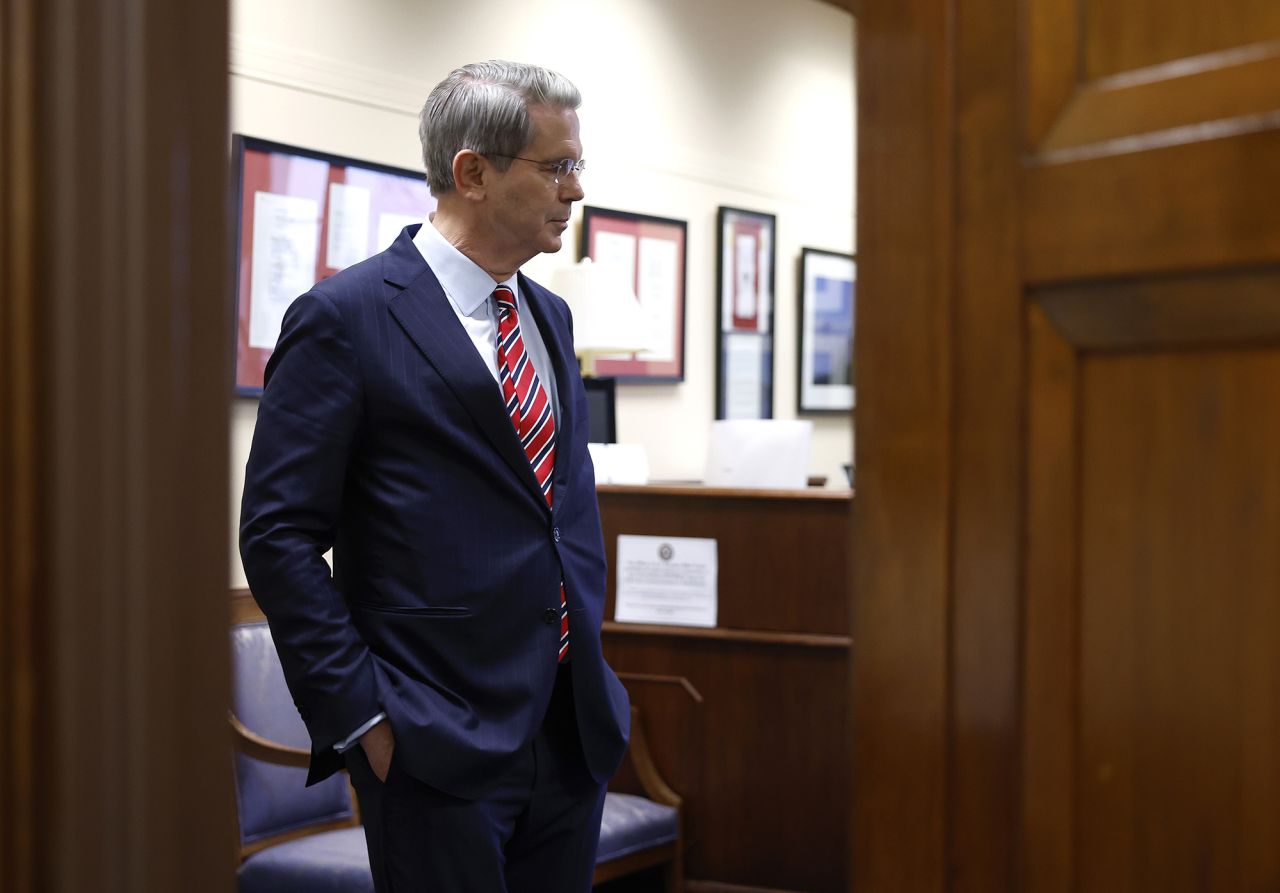In an unexpected twist during President Donald Trump"s first cabinet meeting of his second term, Elon Musk found himself on the defensive after a scathing critique from Trump’s new appointee, Scott Bessent. The world’s richest man, who previously enjoyed a close relationship with Trump, now faces a significant decline in political favor, with Bessent publicly declaring Musk’s polling numbers as "bad" and hinting at a rift within the Trump administration.
Musk"s Political Ambitions Crumble
Elon Musk, known for his extravagant wealth and controversial statements, has increasingly positioned himself as a key player in U.S. politics, especially following his aggressive support for Trump"s 2024 campaign through a political action committee (PAC) that funneled over $250 million into the election. However, as reported by Wikipedia, this financial backing has not translated into lasting political capital. Bessent, a former executive at George Soros"s investment firm, criticized Musk"s effectiveness, suggesting that the billionaire"s influence may be waning.
The Rise and Fall of Musk’s Political Influence
Once seen as a progressive figure with aspirations to reshape politics, Musk"s shift towards a more right-wing ideology raises questions about his ability to navigate the complex landscape of American governance. As noted by Wikipedia, Musk has distanced himself from traditional conservative labels, identifying as a political moderate. Yet, his recent actions, including his harsh backlash against Bessent—calling him a "Soros stooge"—underscore a growing desperation as he attempts to maintain relevance within an increasingly fractured GOP landscape.

January 16, 2025 - Presidential transition news | CNN Politics
Implications for the Trump Administration
The fallout from this exchange not only puts Musk"s political future in jeopardy but also highlights deeper fractures within Trump’s second-term cabinet. As reported by Reuters, Musk"s role as a "downsizing czar" raises ethical concerns about corporate governance and the potential consequences for workers. If Musk continues to be seen as a liability rather than an asset, it could lead to broader challenges for Trump as he attempts to consolidate power and navigate the demands of various factions within his party.
Voter Sentiment Towards Musk
The public’s perception of Musk is rapidly shifting. Bessent"s comments about Musk"s polling reflect a significant change in voter sentiment. According to BBC News, the initial enthusiasm around Musk"s financial contributions appears to be dissipating, leaving him vulnerable to criticism from both sides of the political spectrum. As more voters become disenchanted with the current administration"s handling of economic issues, Musk"s association with Trump could further alienate potential supporters.

Lebanon Co. protesters call for meeting with Rep. Meuser on T…
Corporate Influence on Democracy
The ongoing drama surrounding Musk and the Trump administration raises critical questions about the role of billionaires in shaping our democracy. The significant financial influence exerted by Musk during the 2024 election begs the question: how much power should a single individual wield in the political arena? As a former civil rights attorney, I am acutely aware of how the concentration of wealth impacts democratic governance and civil rights. The potential for corporate interests to overshadow the voices of everyday citizens is a growing concern as we witness figures like Musk attempt to manipulate political landscapes to their advantage.
In a time when civil rights and social justice are under constant threat, it is imperative that we scrutinize the actions of those like Musk, who wield significant financial power yet frequently evade accountability. As we continue to unpack the implications of this cabinet meeting and Musk"s retaliatory remarks, it becomes increasingly clear that the intersection of wealth, power, and politics will demand our unwavering attention.



![[Video] Gunfire between Iraqi security forces and Sadr militias in Baghdad](/_next/image?url=%2Fapi%2Fimage%2Fthumbnails%2Fthumbnail-1768343508874-4redb-thumbnail.jpg&w=3840&q=75)
